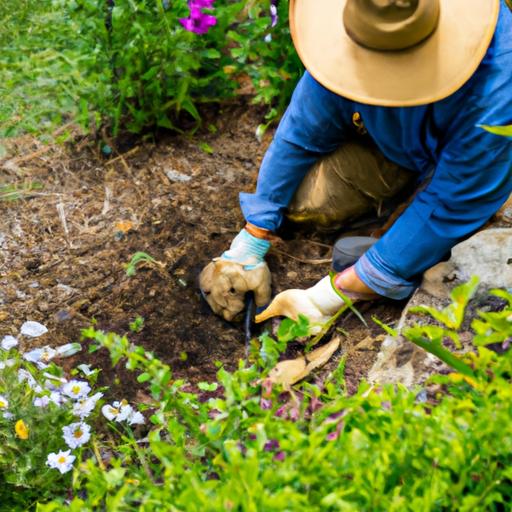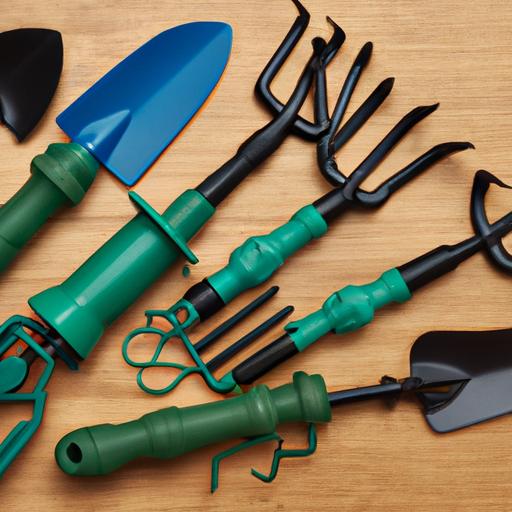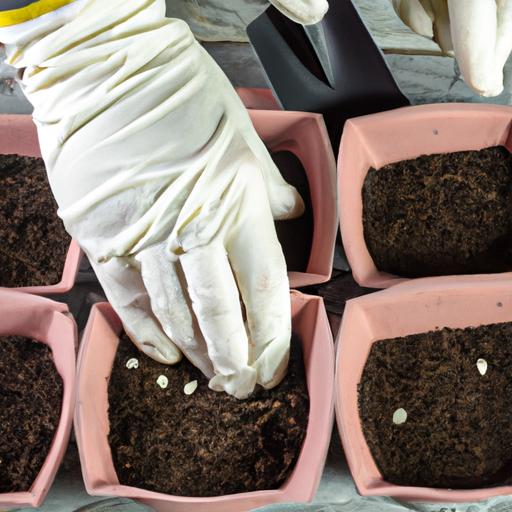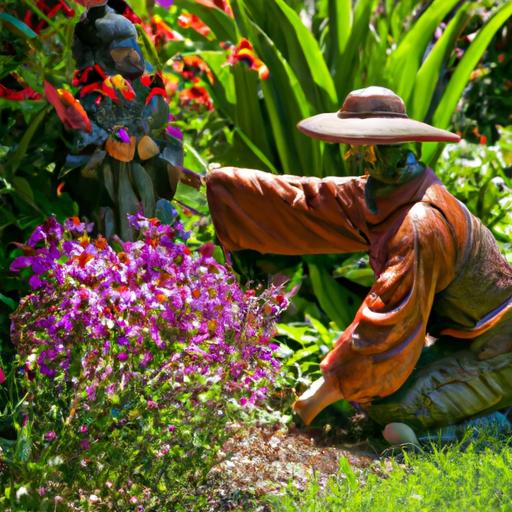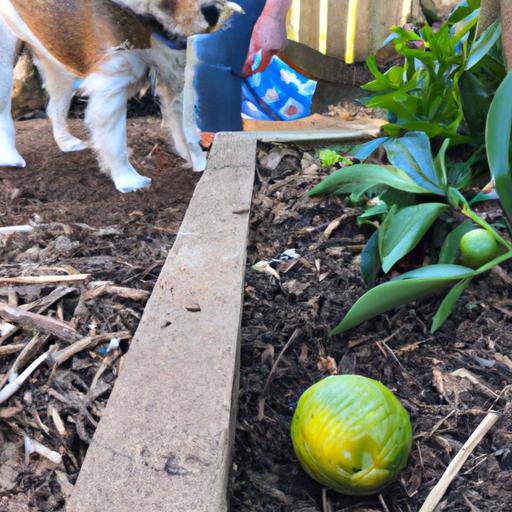Is Gardening Hard? Exploring the Delights and Challenges of this Popular Hobby
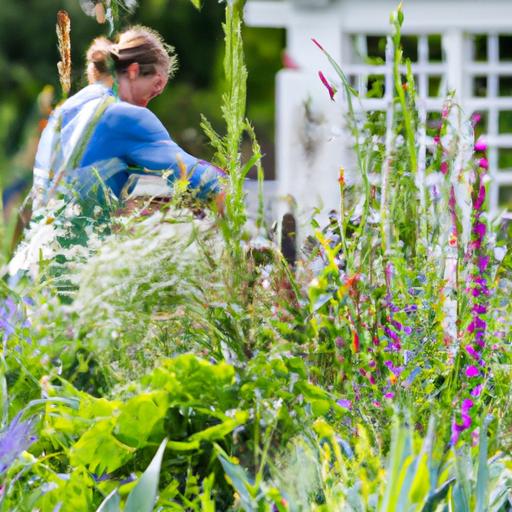
Gardening, a beloved pastime for many, offers a myriad of benefits, from enhancing the aesthetic appeal of our surroundings to nurturing a closer connection with nature. But with all its beauty and rewards, one question often lingers in the minds of those considering embarking on this journey: “is gardening hard?” Today, let’s delve into the world of gardening and uncover the truth behind its perceived difficulty.
A. Brief Overview of Gardening as a Popular Hobby
Gardening has stood the test of time as one of humanity’s most cherished hobbies. From cultivating vibrant flowers to growing fresh vegetables, this age-old practice brings joy and satisfaction to millions of people worldwide. Whether you have a sprawling backyard or a small balcony, gardening offers a creative outlet that enables us to nurture life and witness its incredible transformations.
B. Introduction to the Main Question: “Is Gardening Hard?”
Now, let’s address the pressing question at hand. Is gardening truly a challenging endeavor? The answer, as with many things in life, lies in the eye of the beholder. While gardening involves effort and dedication, it is important to remember that the level of difficulty varies depending on several factors. By understanding these nuances, we can better prepare ourselves for the journey ahead.
C. Importance of Understanding the Difficulty Level Before Starting a Garden
Before plunging into the world of gardening, it is crucial to assess the level of difficulty associated with this endeavor. By gaining a comprehensive understanding of the challenges that may arise, we equip ourselves with the knowledge and resources necessary to overcome them. This ensures a smoother and more enjoyable gardening experience, allowing us to reap the full benefits of our efforts.
As we embark on this exploration of gardening’s intricacies, let’s uncover the various factors that determine its difficulty level. From climate considerations to the physical demands it imposes, we’ll delve into each aspect to gain a holistic understanding of the challenges that lie ahead. So, fasten your gardening gloves and join me as we unravel the mysteries of this captivating hobby!
Factors that Determine the Difficulty of Gardening
A. Climate and Weather Conditions
The climate and weather conditions in your region play a significant role in the level of difficulty you may encounter while gardening. Different plants thrive in specific climates, so understanding your local weather patterns is crucial for successful cultivation. Are you in a region with long, hot summers or harsh winters? Consider the temperature range, humidity, and rainfall patterns to choose plants that can withstand these conditions.
B. Soil Quality and Preparation
The quality of your soil is another critical factor that affects the difficulty level of gardening. Assess the composition of your soil, including its pH levels, texture, and nutrient content. Some plants may require specific soil types, while others can adapt to various conditions. Investing time in soil preparation, such as adding organic matter or adjusting pH levels, can significantly improve the health and growth of your plants.
C. Plant Selection and Knowledge
Choosing the right plants for your garden is essential for a successful gardening experience. Each plant has unique requirements, including sunlight exposure, water needs, and growth habits. Acquiring knowledge about different plant species, their care requirements, and compatibility with your local climate will help you make informed choices. Start with beginner-friendly plants and gradually expand your repertoire as you gain confidence and expertise.
D. Time Commitment and Maintenance
Gardening demands time and consistent effort. Before diving into this hobby, consider your availability and commitment level. Some plants require regular attention, daily watering, pruning, and pest control, while others may be low-maintenance. Evaluate the time you can dedicate to your garden and choose plants accordingly. Planning and organizing your gardening tasks can help manage your time effectively and ensure a thriving garden.
E. Budget Considerations
While gardening can be a cost-effective hobby, it’s essential to consider your budget. Expenses may include purchasing plants, seeds, tools, fertilizers, and soil amendments. Additionally, investing in proper irrigation systems or protective measures against pests can incur costs. Assess your financial resources and plan accordingly to make the most of your gardening experience without straining your budget.
By understanding and evaluating these factors, you can gauge the level of difficulty you may encounter in your gardening journey. Remember, every challenge presents an opportunity to learn and grow as a gardener. So, let’s move forward and explore the specific challenges that gardening entails, empowering ourselves to overcome them with confidence and grace.
Understanding the Challenges of Gardening
Gardening, while rewarding, is not without its fair share of challenges. As we delve deeper into this captivating hobby, let’s explore some of the obstacles that may arise along the way.
A. Physical Labor and Stamina Required
Gardening demands physical exertion and stamina. Tilling the soil, lifting heavy pots, and maintaining garden beds can be physically demanding. However, this physicality also brings forth a sense of accomplishment and offers an opportunity to stay active. Remember, starting small and gradually increasing the workload can help build endurance and prevent unnecessary strain.
B. Dealing with Pests and Diseases
Just as we cherish our plants, so do various pests and diseases. From pesky insects to fungal infections, these unwelcome guests can wreak havoc on our beloved garden. Identifying and combating these challenges requires vigilance and knowledge. Implementing organic pest control methods, practicing proper sanitation, and researching plant-specific diseases can help mitigate these issues and maintain a thriving garden.
C. Managing Irrigation and Watering Needs
Proper hydration is paramount for plant health, but finding the delicate balance can be tricky. Overwatering can drown roots, while underwatering can lead to parched plants. Understanding the water requirements of different plants, considering climate conditions, and implementing efficient irrigation systems or watering schedules can help ensure optimal hydration levels for your garden.
D. Handling Seasonal Variations and Challenges
Each season brings its own set of challenges. Frost in winter, scorching heat in summer, and unpredictable weather patterns can impact plant growth and survival. Adapting gardening practices to accommodate seasonal variations, such as providing protective coverings or utilizing shade structures, can help safeguard plants and maintain a thriving garden throughout the year.
E. Maintaining a Balance Between Different Plant Needs
Every plant has unique requirements, including sunlight exposure, soil pH levels, and nutrient preferences. Achieving the perfect balance for a diverse garden can be a juggling act. Understanding the individual needs of each plant and creating a harmonious environment through proper spacing, companion planting, and soil amendments can foster healthy growth and a flourishing garden.
As we navigate through these challenges, remember that experience and knowledge are our greatest allies. Embrace the learning process, seek guidance from experienced gardeners, and arm yourself with resources to overcome these hurdles. With dedication and perseverance, you can conquer the challenges and revel in the beauty of a thriving garden.
Overcoming the Challenges in Gardening
A. Seeking Knowledge Through Gardening Resources and Communities
When faced with the challenges of gardening, knowledge becomes our greatest ally. By tapping into the vast array of gardening resources and communities available, we can gain valuable insights and guidance from experienced gardeners. Online forums, gardening books, and local gardening clubs provide a wealth of information, tips, and tricks to help us navigate the hurdles that come our way. Engaging with fellow enthusiasts allows us to exchange ideas, troubleshoot problems, and learn from each other’s experiences.
B. Proper Planning and Preparation
As the saying goes, “Failing to plan is planning to fail.” Adequate planning and preparation play a crucial role in overcoming gardening challenges. Start by assessing your space, understanding the climate, and selecting plants that thrive in your specific conditions. Create a garden layout, considering factors like sunlight exposure, soil pH, and water requirements. By carefully planning and organizing your gardening endeavors, you set yourself up for success and minimize potential difficulties along the way.
C. Utilizing Gardening Tools and Technology
In today’s digital age, gardening has become more accessible and efficient with the help of innovative tools and technology. From soil testers and irrigation systems to smartphone apps that provide plant care reminders, these advancements can simplify the gardening process. Embrace these tools and leverage their capabilities to streamline tasks, monitor plant health, and stay informed about optimal gardening practices. By harnessing the power of technology, you can overcome challenges with greater ease and maximize the productivity of your garden.
D. Implementing Effective Pest Control Measures
Pests can wreak havoc on our beloved plants, posing a significant challenge to successful gardening. To combat this issue, it is essential to implement effective pest control measures. This can include organic solutions like companion planting, introducing beneficial insects, or using natural pest repellents. Additionally, regular inspection and early intervention can help prevent minor pest issues from escalating into major problems. By staying vigilant and employing environmentally-friendly pest control methods, you can safeguard your garden and ensure its flourishing growth.
E. Adjusting Gardening Practices Based on Experience
As you gain experience in gardening, it is crucial to adapt and adjust your practices accordingly. Each garden is unique, and what works for one might not necessarily work for another. Observe your plants closely, learn from their responses, and make necessary adjustments to your watering, fertilizing, and pruning routines. Gardening is a journey of continuous learning, and by honing your skills and adapting to the specific needs of your garden, you can overcome challenges and nurture a thriving oasis.
With these strategies in your arsenal, you’ll be well-equipped to conquer the challenges that gardening presents. Remember, persistence and a willingness to learn are key. Embrace the process, relish in the rewards, and let your garden flourish under your knowledgeable care.
Tips for Beginners to Make Gardening Easier
A. Start Small and Gradually Expand the Garden
When venturing into the world of gardening, it’s wise to start small and gradually expand your garden as you gain confidence and experience. Begin by selecting a few plants or a small plot of land that you can easily manage. This approach allows you to focus your attention and efforts, ensuring that you provide the necessary care and attention to each plant. As your knowledge and skills grow, you can gradually expand your garden, taking on new challenges and experimenting with different plant varieties.
B. Choose Low-Maintenance Plants Suitable for the Local Climate
Selecting the right plants is key to making gardening a breeze, especially for beginners. Opt for low-maintenance plant varieties that are well-suited to the local climate and soil conditions. Native plants or those adapted to the region tend to be more resilient and require less intervention. Additionally, consider factors such as sunlight requirements, water needs, and pest resistance when choosing your plants. By selecting the right plants from the start, you’ll set yourself up for success and minimize the chances of encountering overwhelming difficulties.
C. Develop a Gardening Schedule and Stick to It
Consistency is key in gardening, and developing a gardening schedule can help you stay on track and avoid unnecessary complications. Create a simple calendar or planner to keep track of essential tasks such as watering, fertilizing, and pruning. Regularly tending to your garden based on a predetermined schedule ensures that your plants receive the care they need at the right time. This practice not only helps your plants thrive but also helps you stay organized and prevents tasks from piling up, making gardening feel more manageable.
D. Utilize Containers and Raised Beds for Easier Maintenance
For those with limited space or physical constraints, utilizing containers and raised beds can significantly ease the maintenance of your garden. Containers offer flexibility, allowing you to move plants around to optimize sunlight exposure or protect them from harsh weather conditions. Raised beds provide better control over soil quality and drainage while reducing the need for excessive bending or kneeling. These alternatives make gardening more accessible and can be particularly beneficial for beginners looking to simplify their gardening experience.
E. Seek Guidance from Experienced Gardeners or Professionals
One of the best ways to make gardening easier is to seek guidance from experienced gardeners or professionals. Join local gardening communities, attend workshops, or participate in online forums where you can connect with seasoned gardeners who are eager to share their knowledge and expertise. Their insights, tips, and tricks can prove invaluable, helping you navigate potential challenges and providing you with the confidence to overcome any difficulties that arise. Remember, you don’t have to embark on this gardening journey alone; there is a vast community of green thumbs waiting to offer their support.
By following these practical tips, you’ll be well on your way to making gardening a more enjoyable and rewarding experience. Remember, every gardener starts as a beginner, and with time, patience, and a bit of trial and error, you’ll soon find yourself flourishing in the world of gardening. So, let’s dig in and embrace the wonders that gardening has to offer!
Conclusion
In conclusion, we have embarked on a journey to answer the question, “Is gardening hard?” Throughout this exploration, we have discovered that gardening, while not without its challenges, is a rewarding and fulfilling endeavor.
Gardening offers a multitude of benefits, from the sheer beauty it brings to our surroundings to the sense of accomplishment that comes with nurturing life. While it requires effort and dedication, the joy and satisfaction it provides far outweigh the difficulties.
By understanding the factors that determine the difficulty of gardening, such as climate, soil quality, and plant knowledge, we can better prepare ourselves for success. Overcoming the challenges of physical labor, pests, and seasonal variations becomes easier when armed with knowledge and proper planning.
For beginners, starting small, choosing low-maintenance plants, and seeking guidance from experienced gardeners can make the journey more manageable. Developing a gardening schedule and utilizing containers or raised beds can also alleviate some of the maintenance burdens.
In the end, gardening is not just about the final result, but also about the joy found in the process. It allows us to connect with nature, relieve stress, and create a sanctuary of beauty and tranquility. So, let’s embrace gardening as a rewarding and enjoyable hobby, and let the wonders of nature unfold before our very eyes.
Remember, gardening may have its challenges, but with determination, knowledge, and a touch of green-thumb magic, you’ll find that the rewards far outweigh the efforts. So, grab your gardening tools, put on your sun hat, and let the seeds of your passion blossom into a flourishing garden. Happy gardening!
Conclusion: So above is the Is Gardening Hard? Exploring the Delights and Challenges of this Popular Hobby article. Hopefully with this article you can help you in life, always follow and read our good articles on the website: plants.123didulich.com
